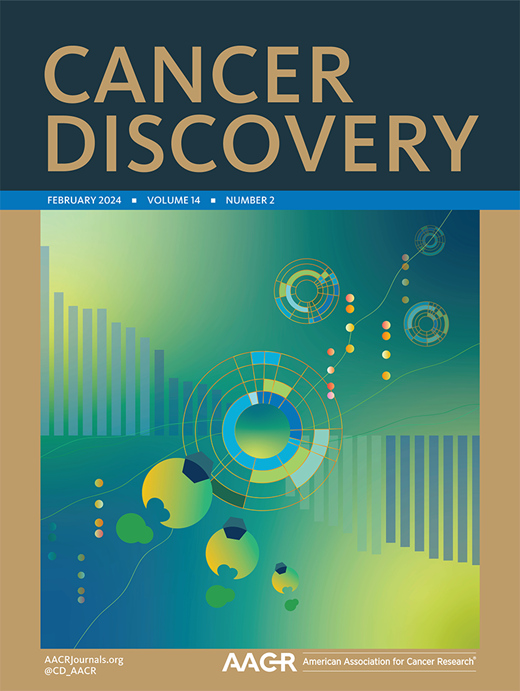Functional reprogramming of neutrophils within the brain tumor microenvironment by hypoxia-driven histone lactylation
IF 29.7
1区 医学
Q1 ONCOLOGY
引用次数: 0
Abstract
Despite functional heterogeneity, high frequency of intratumoral neutrophils predicts poor clinical outcomes. The tumor microenvironment reprograms neutrophils into immunosuppressive subsets that hinder anti-cancer immunity, thereby contributing to tumor growth and resistance to immunotherapies. However, the mechanisms underlying neutrophil reprogramming remain elusive. Here, we report that the immunosuppressive ability of brain tumor-infiltrating neutrophils was restricted to a highly glycolytic and long-lived subset expressing CD71, which acquired immunosuppressive properties in response to hypoxia. Mechanistically, hypoxia boosted glucose metabolism in CD71+neutrophils, leading to high lactate production. Lactate caused histone lactylation, which subsequently regulated arginase-1 expression, required for T cell suppression. Targeting histone lactylation with the anti-epileptic drug isosafrole blocked CD71+neutrophil immunosuppressive ability, delayed tumor progression and sensitized brain tumors to immunotherapy. A distinctive gene signature characterizing immunosuppressive CD71+neutrophils correlated with adverse clinical outcomes across diverse human malignancies. This study identifies histone lactylation as a potential therapeutic target to counteract neutrophil-induced immunosuppression within tumors.缺氧驱动组蛋白乳酸化对脑肿瘤微环境中性粒细胞功能重编程的影响
尽管功能异质性,瘤内中性粒细胞的高频率预示着不良的临床结果。肿瘤微环境将中性粒细胞重新编程为免疫抑制亚群,从而阻碍抗癌免疫,从而促进肿瘤生长和对免疫治疗的抵抗。然而,中性粒细胞重编程的机制仍然难以捉摸。在这里,我们报道了脑肿瘤浸润中性粒细胞的免疫抑制能力仅限于表达CD71的高度糖酵解和长寿命亚群,该亚群在缺氧条件下获得免疫抑制特性。在机制上,缺氧促进了CD71+中性粒细胞的葡萄糖代谢,导致高乳酸生成。乳酸引起组蛋白乳酸化,随后调节精氨酸酶-1的表达,这是T细胞抑制所必需的。用抗癫痫药物异黄樟醇靶向组蛋白乳酸化可阻断CD71+中性粒细胞的免疫抑制能力,延缓肿瘤进展,使脑肿瘤对免疫治疗增敏。免疫抑制性CD71+中性粒细胞的独特基因特征与多种人类恶性肿瘤的不良临床结果相关。本研究确定组蛋白乳酸化是对抗肿瘤中性粒细胞诱导的免疫抑制的潜在治疗靶点。
本文章由计算机程序翻译,如有差异,请以英文原文为准。
求助全文
约1分钟内获得全文
求助全文
来源期刊

Cancer discovery
ONCOLOGY-
CiteScore
22.90
自引率
1.40%
发文量
838
审稿时长
6-12 weeks
期刊介绍:
Cancer Discovery publishes high-impact, peer-reviewed articles detailing significant advances in both research and clinical trials. Serving as a premier cancer information resource, the journal also features Review Articles, Perspectives, Commentaries, News stories, and Research Watch summaries to keep readers abreast of the latest findings in the field. Covering a wide range of topics, from laboratory research to clinical trials and epidemiologic studies, Cancer Discovery spans the entire spectrum of cancer research and medicine.
 求助内容:
求助内容: 应助结果提醒方式:
应助结果提醒方式:


